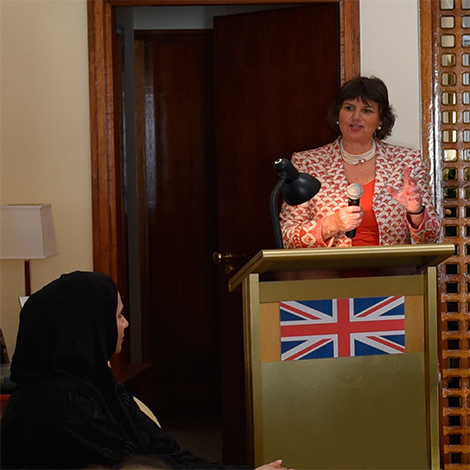LinkedIn profiles – first or third person?!
12 August 2015 By Northern Lights

How should you write your LinkedIn profile?
First person – I am the UK’s leading authority on …
Or
Third person – John Smith is the UK’s leading authority on …
There is no definitive right or wrong answer and we frequently debate the pros and cons of both. I would love your views on what you think works best.
Here I have set out some of the arguments from experts and our own views – and will give my conclusion. But does it feel right to you?!
I wrote a blog on Directors’ LinkedIn profiles – how to write them a while ago and also how to use LinkedIn as part of your professional personal branding. Looking at the views below, what strikes me is the difference between a profile as a senior leader and as a middle manager looking for a job. And that possibly affects whether you use first or third person?
1. The arguments for and against first and third person
 Judy Schramm, a LinkedIn expert, looks at the pros and cons in her blog on first or third person. She says, “[Using the third person] helps prevent sounding egotistical as it’s challenging to limit the use of “I” in a first person narrative about you.”
Judy Schramm, a LinkedIn expert, looks at the pros and cons in her blog on first or third person. She says, “[Using the third person] helps prevent sounding egotistical as it’s challenging to limit the use of “I” in a first person narrative about you.”
While agreeing that there is no right or wrong, she comes down in favour of first person, saying “Experts who recommend taking the first person approach believe it sounds more personal while third person comes across as distant, fake and like someone else wrote it. It’s harder to relate to someone who doesn’t directly speak to you. When you’re in Twitter, Facebook, and other social media platforms, you speak in the first person. And LinkedIn is a social network. When you meet people at a networking event, you talk in the first person.”
Jerome Knyszewski also blogs about this in his LinkedIn profile tips: first vs third person. He says: “The third person has a different feel to it and can almost make that person appear even more powerful and influential than if it was written in the first person. That being said, writing in the third person can come across as impersonal and if not backed up with strong positioning, it can be perceived as arrogant or even a bit megalomaniac.”
The Undercover Recruiter is in no doubt that a LinkedIn profile has to be written in the first person, “When I see the 3rd person on a LinkedIn page I think, has this person been hacked? Or are you just that out of touch when it comes to presenting yourself on the social web?
 “The social web’s value lies in direct connection to anyone’s personal page. Whether it’s Facebook, LinkedIn, Twitter, Google+, or wherever, nearly everyone stores some form of their identity on a page online. That’s why my company’s job advertisements encourage candidates to apply with whatever profiles already store their information. Candidates (and companies for that matter) should be forthcoming. Your information is out there for reference. When you write about yourself on your LinkedIn profile, the use of the first person is appropriate.”
“The social web’s value lies in direct connection to anyone’s personal page. Whether it’s Facebook, LinkedIn, Twitter, Google+, or wherever, nearly everyone stores some form of their identity on a page online. That’s why my company’s job advertisements encourage candidates to apply with whatever profiles already store their information. Candidates (and companies for that matter) should be forthcoming. Your information is out there for reference. When you write about yourself on your LinkedIn profile, the use of the first person is appropriate.”
2. LinkedIn for directors?
We help directors write their profiles to position them as experts in their field and ensure their LinkedIn reflects their authority – and that they will be found in searches for that expertise.
Our view is that using the first person at this level can actually make a person sound quite junior – or very American! It can sound rather breathless and enthusiastic, as opposed to giving weight and credibility to the director.
I have also noticed that most life coaches and individuals who offer personal consultancy (from ‘I will make you money’ to ‘I am here to change your life’ or ‘I help your website to come top of Google) all use the first person. While there is definitely a personal touch this way, it feels too personal for the CEO of a FTSE or the FD of a manufacturing business?
In the comments above, there are several references to the fact that social media is very personal. But I don’t think LinkedIn for senior people is quite the same. It is very professional and quite different from Twitter or Facebook.
The social element of LinkedIn comes to life when you’re commenting on posts and updates on LinkedIn or sharing your own content. That’s when you show your personality and expertise by speaking in the first person.
3. Can you mix up first and third person
I confess some years ago I tried starting my summary with ‘Victoria Tomlinson is former director of EY and founded Northern Lights to …’
In the second paragraph I went into first person with something like ‘I am passionate about …’
I do a lot of LinkedIn training – especially with sales teams to use LinkedIn to win business and would put my profile up for everyone to analyse and take to pieces. Well, this mix of first and third person was mostly definitely a no-no! No-one liked it and everyone thought it all very odd. And on reflection, I agreed.
4. Third person on LinkedIn is authoritative
So my definitive view is – third person is best for professionals, senior people, thought leaders and experts in their field.
Most directors that I work with are already uncomfortable at packaging themselves professionally. When I wrote one director’s profile, she said ‘it is me, but can I have a few days to get used to me’. The thought of using first person in this profile would have been a step too far. But at least in third person it sounds like someone else is saying this about you!
This does go against the other views I could find on a Google search – but I think you have to put it into context. What do you think?

